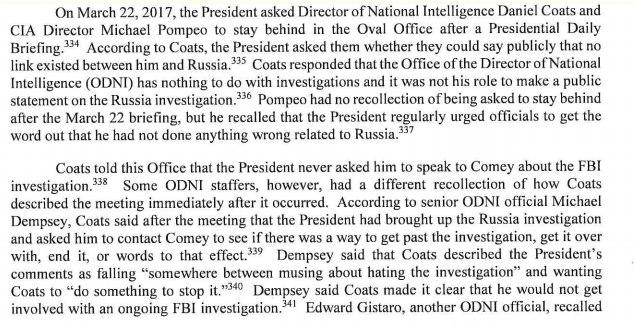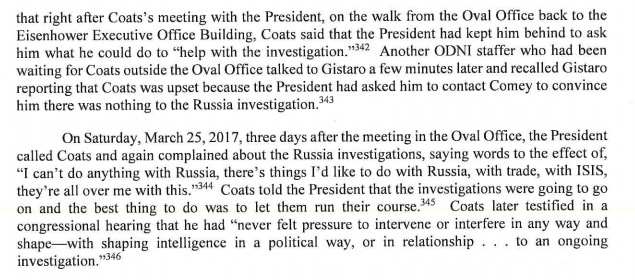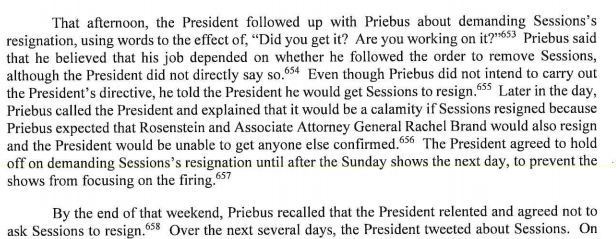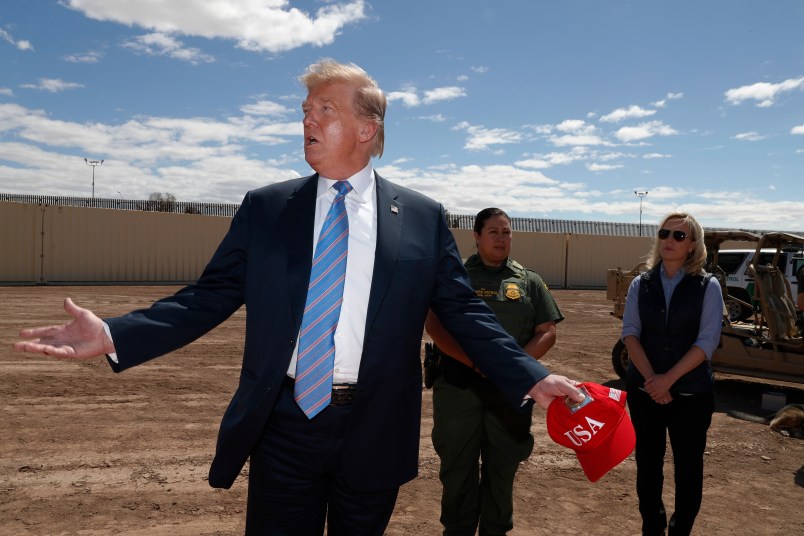As special counsel Robert Mueller himself said, President Trump may have been more successful in influencing the Russia investigation had his aides been more willing to go along with his requests. As we go through the report, we’re keeping a running list of all the people who had to ignore or rebuff a request from Trump to do something to meddle in the investigation:
Chris Christie: After former National Security Advisor Mike Flynn’s resignation, Trump dined with former Gov. Chris Christie, who told the President that ousting Flynn wasn’t enough to end the scrutiny of the Russia investigation. At the end of the lunch, Trump told Christie to deliver a friendly message to FBI Director James Comey. Christie did not do so, because of the position it would put Comey in.

KT McFarland: Amid the Flynn firestorm, Trump, via an instruction to Reince Priebus, wanted McFarland to put in writing that Trump had not directed Flynn’s sanctions-related calls with the Russian ambassador. She wasn’t sure if that was true, and was ultimately advised not to do so.



Jeff Sessions: Trump repeatedly and unsuccessfully pressured Sessions to reverse his recusal from the Russia probe, including during a trip to Mar-a-Lago soon after the recusal was announced.

Dana Boente: Though there are some differences in White House Counsel Don McGahn’s and Boente’s accounts, Trump instructed McGahn to call Boente — then the acting attorney general when it came to oversight of the Russia probe — to get the Justice Department to clear his name. Boente recalled McGahn asking him if he could speed the investigation up and Boente told McGahn there was no way to shorten the probe.


Later on, there was another McGahn-Boente phone call where Trump’s requests were discussed, but again the accounts of the call differ.


Dan Coats: Trump asked Director of National Intelligence Dan Coats to publicly deny links between the President and Russia, a request Coats rebuffed. Additionally Coats’ aides recalled Coats telling them that the President had asked him to contact Comey about ending the probe.


Rod Rosenstein: After Rosentein wrote the recommendation that Trump used to justify firing Comey, Trump wanted Rosenstein do a press conference to state that the decision to terminate Comey was all Rosenstein’s rather than Trump’s.

Notes from the Justice Department indicate that Reince Priebus was “screaming ” at the Justice Department press office to try to get Rosenstein to do the press conference.

Don McGahn: McGahn rebuffed Trump’s request to pressure the Justice Department on the alleged conflicts of interest within Mueller’s team.
As previously reported, Trump also asked McGahn to remove Mueller, but didn’t push it when McGahn prepared to resign instead.

Rick Dearborn: Corey Lewandowski passed along to Dearborn a dictation of a message Trump wanted delivered to Sessions demanding that the attorney general narrow Mueller’s probe. Dearborn did not pass along the message because the request made him uncomfortable.

Reince Priebus: Priebus slow-walked a Trump directive that he get Sessions’ resignation in the summer of 2017 and ultimately Trump backed down from it.

Rob Porter: Trump, as he was thinking of firing Sessions over the Russia probe recusal, sought for Porter to feel out whether Rachel Brand, a top Justice Department official, would be interested in taking over the probe. Porter didn’t get in touch with Brand to sound her out because he didn’t want to be involved in a chain of events the would result in the firing of Mueller or termination of the Russia probe.







